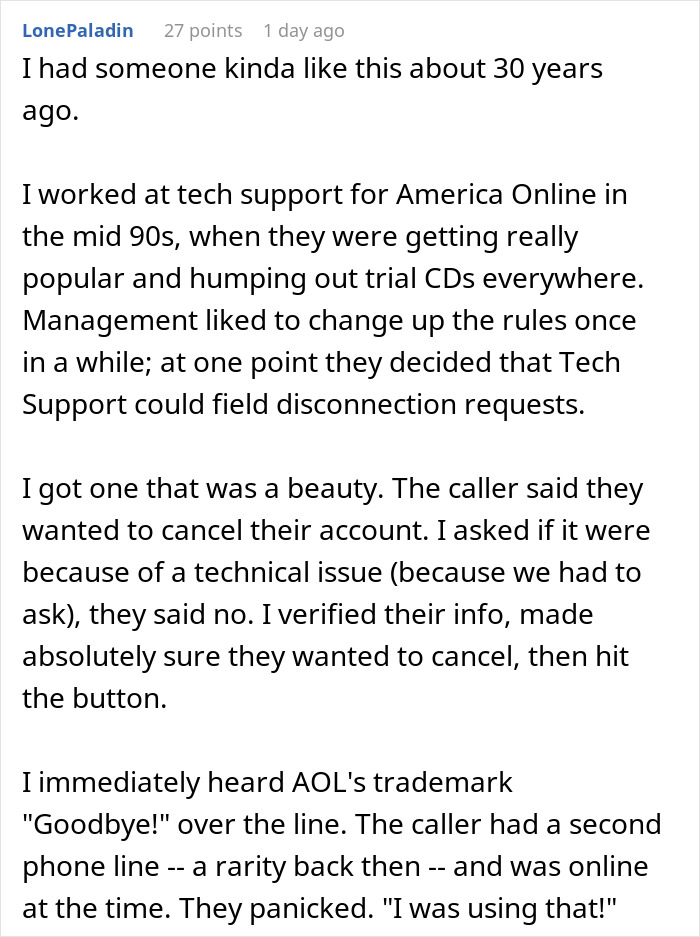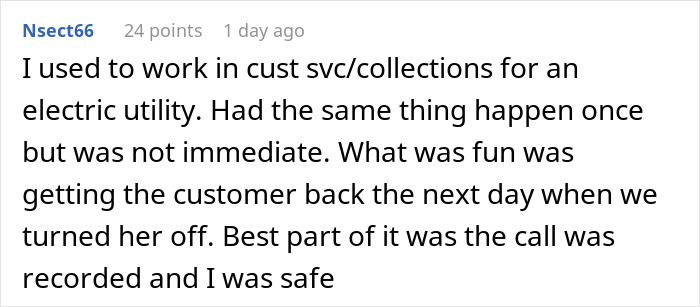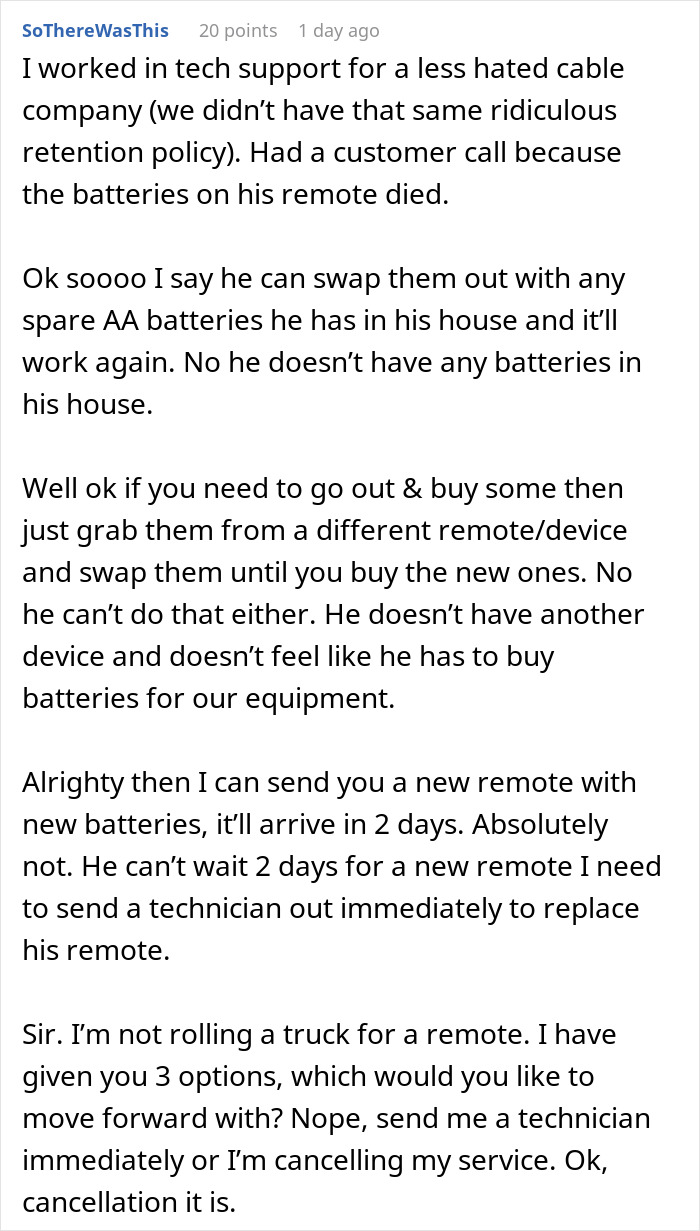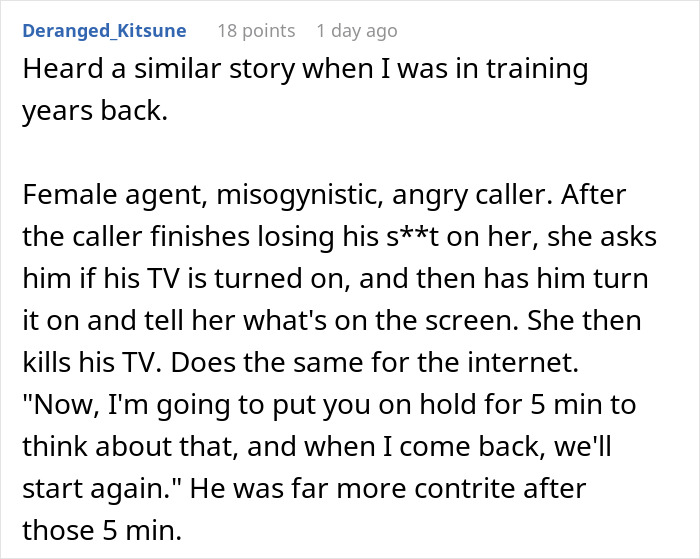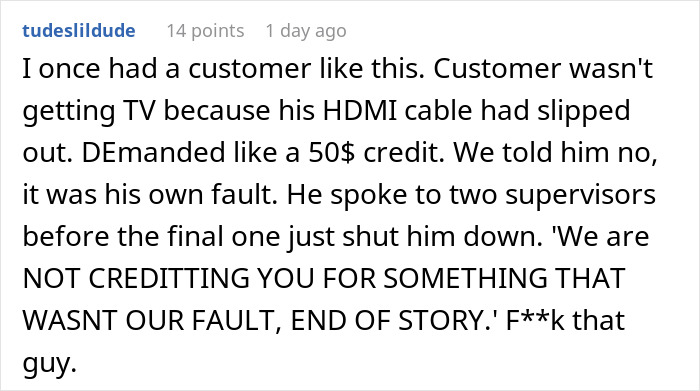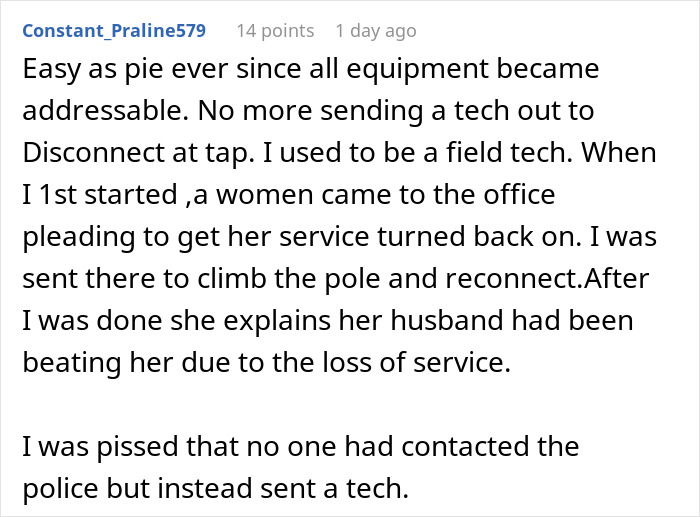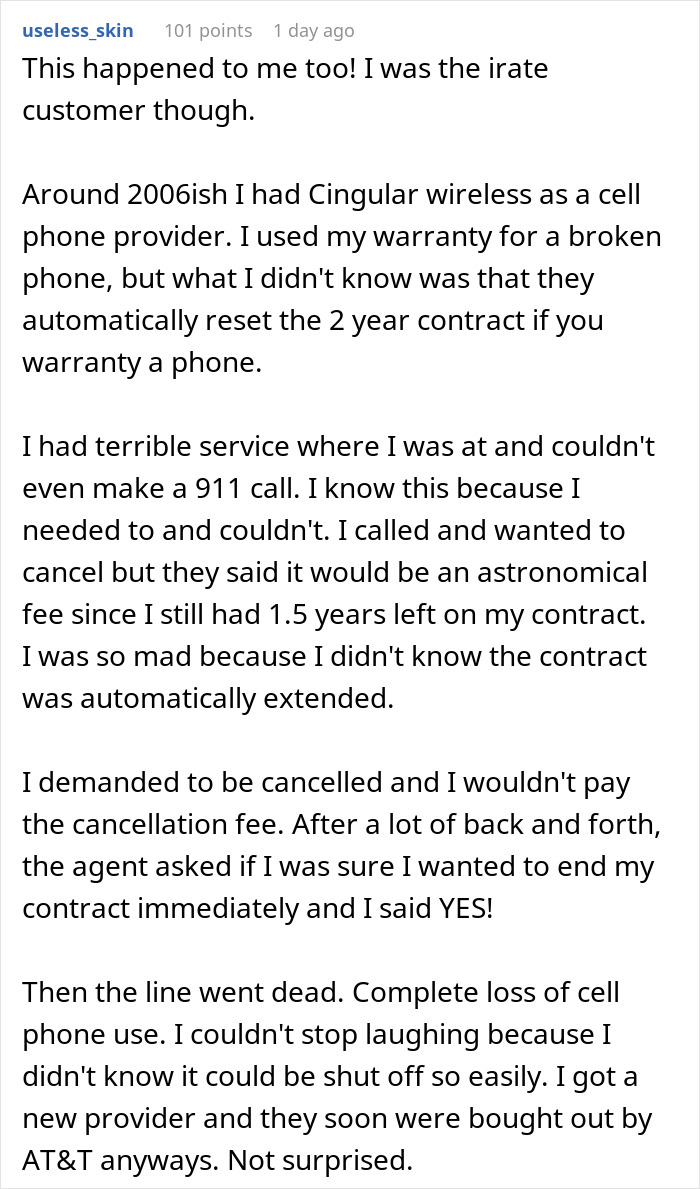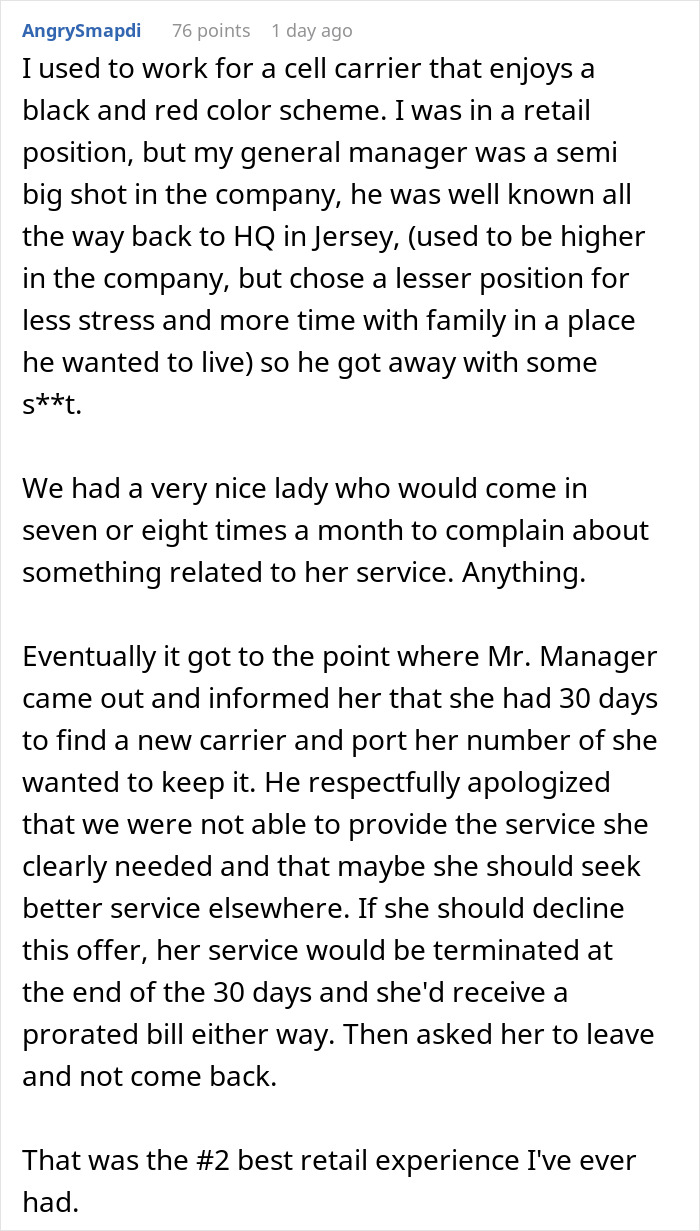Working in customer service means dealing with all kinds of challenges, and sometimes, even the best efforts to resolve an issue can fall on deaf ears.
One employee at a major US cable provider had a particularly tense encounter with a rude customer. As they explained on the ‘Malicious Compliance’ subreddit, the frustrated man demanded, “Turn my service off, right now.” Despite attempts to offer a reasonable solution, he, already on the phone for an hour, insisted on immediate action. The representative complied, but the customer instantly regretted his decision.
This cable provider employee had to deal with a rude customer who demanded a $200 refund for a service outage but insisted his service be cut off altogether when the refund was denied

Image credits: DC_Studio / Envato (not the actual photo)
The employee turned off the man’s service as requested, leading to immediate regret
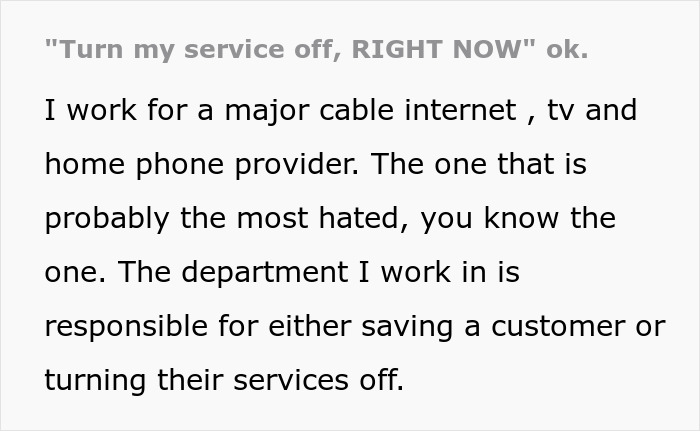
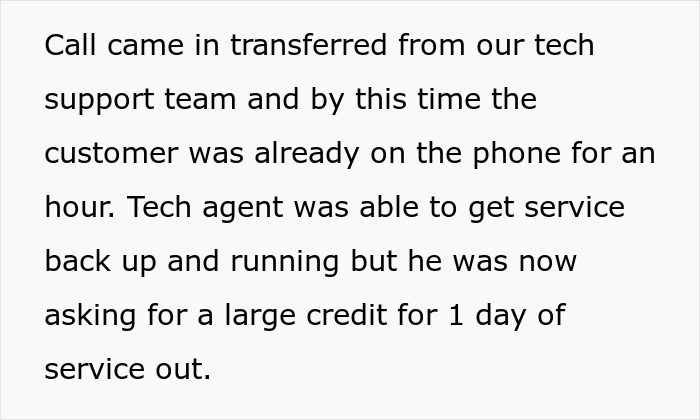
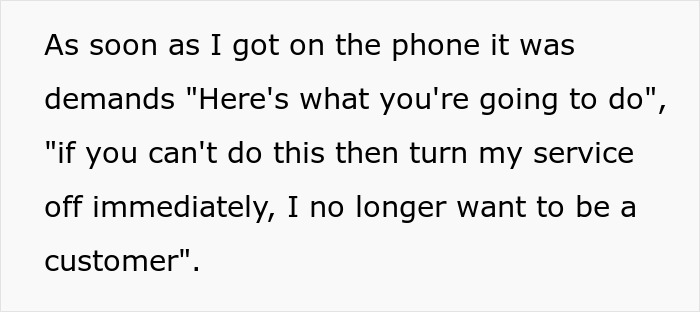
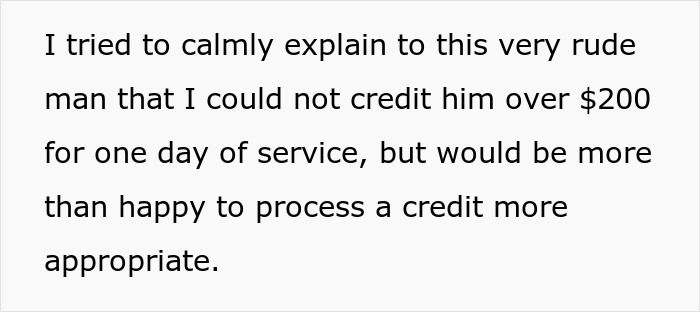
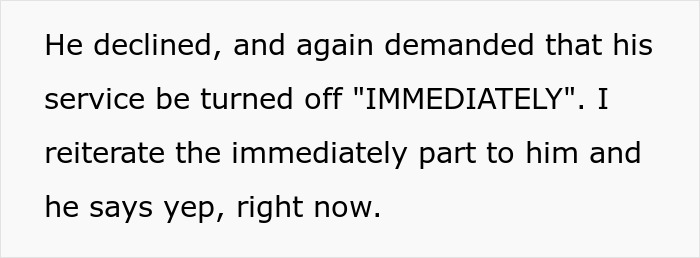

Image credits: Prostock-studio / Envato (not the actual photo)
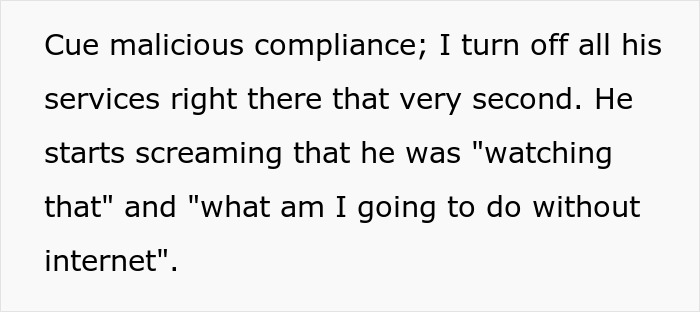
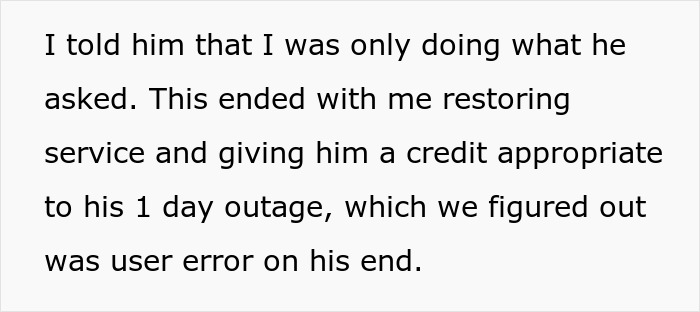
Image credits: thefloorisbennylava
Most people are unhappy with their cable providers

Image credits: Pressmaster / Envato (not the actual photo)
Although the Redditor in the story tried to address the situation with the rude customer logically and calmly, instances of people having issues with US cable companies are very common. According to the American Customer Satisfaction Index, cable and internet providers have consistently ranked at the bottom of the list of industries in customer satisfaction for over a decade.
More than half of respondents in one of the reports have said they would leave their cable provider if they had a good alternative. About 73 percent feel that “cable companies are predatory in their practices and take advantage of consumers’ lack of choice,” while 72 percent “worry that the larger the cable companies become, the worse off consumers are.”
The main reason behind this is that the brands in this industry don’t face real market competition, allowing them to raise prices and neglect customer satisfaction. Consequently, they often provide poor customer service.
“Cable is essentially a monopoly now in urban areas,” says Susan Crawford, a professor at Harvard Law School and a former policy adviser to President Obama on science, technology, and innovation. “We’re privileging the interests of a couple of companies over three hundred million Americans.”
Unfortunately, service reps are the ones who have to bear the brunt of customers’ anger

Image credits: voronaman111 / Envato (not the actual photo)
However, agitation with major companies doesn’t excuse the rudeness displayed toward customer service workers. According to 2022 research by Christine Porath, a professor of management at Georgetown University, 76% of frontline employees experience incivility at least once a month. Additionally, 73% report that it’s not unusual for customers to behave badly, and 78% believe that such behavior is more common now than it was five years ago.
Bored Panda got in touch with psychotherapist Sabina Nazarova, who also shares advice on her Instagram and writes articles on Medium, to learn why some struggle to control their emotions around customer service workers. Nazarova explains that people typically reach out to customer service when they encounter unresolved issues. They are often complex and lead to confusion and frustration, especially when customers don’t fully understand the process.
“In such situations, feeling a lack of control may trigger a fight-or-flight response, sometimes resulting in anger as a defense mechanism,” she says. “Many approach customer service with low expectations based on past experiences. If they perceive the representative as unsympathetic or unresponsive, their frustration intensifies.”
When the stress builds up, even small difficulties can push well-mannered individuals over the edge. And if you’re a service worker, it means you’re the person in the line of fire, tasked with handling these heightened reactions. Moreover, in the eyes of some customers, service reps don’t have enough authority. “They’re often seen as having less power,” says Nazarova. “The anonymity of phone or online interactions lowers inhibitions, making it easier for people to express anger without fearing personal consequences—an ethical concern.” This phenomenon is often referred to as the ‘scapegoat theory’—the psychological term for the tendency to look for someone to blame.
“Some people forget that customer service workers aren’t the problem; they’re just trying to help, often with low pay and high stress. We need to increase awareness and empathy towards customer service workers and start appreciating their help.”
Long calls with service reps can be frustrating, but sometimes the problem is on the customer’s end
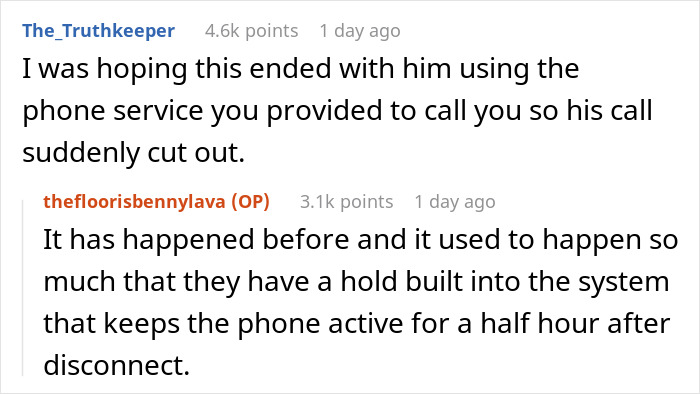
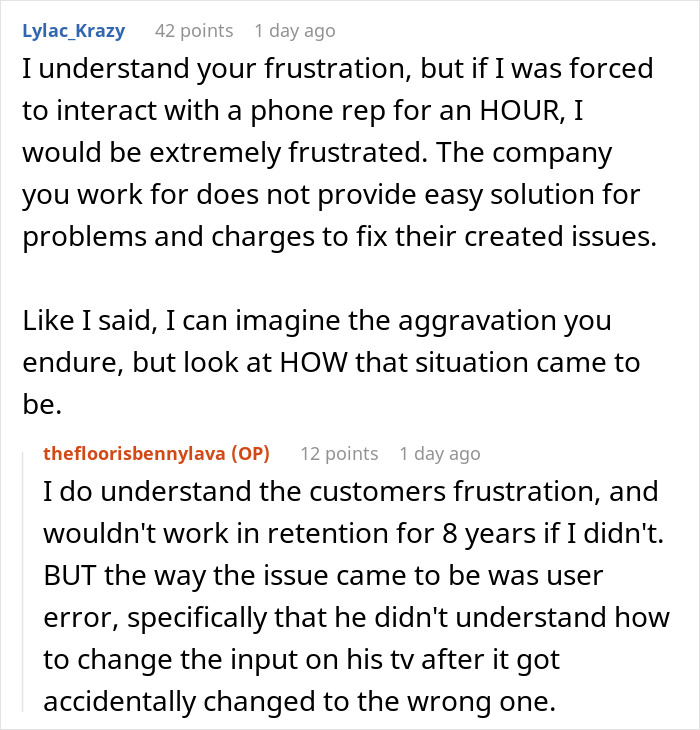
Commenters called out the customer’s fault and shared their own funny takes on the situation


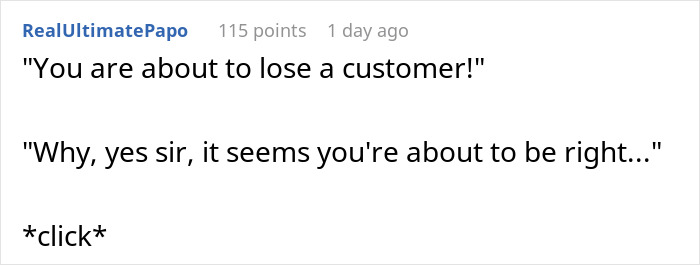

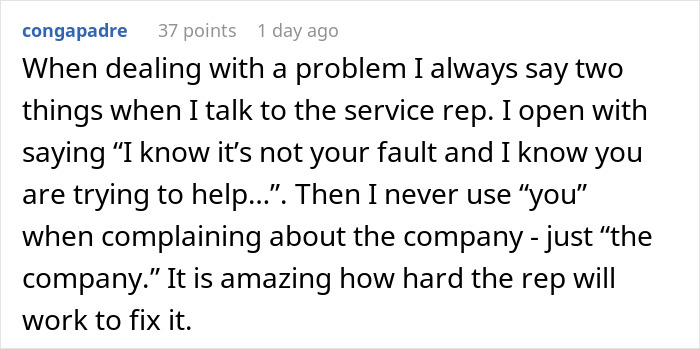

Other Redditors talked about their own customer service experiences at work
